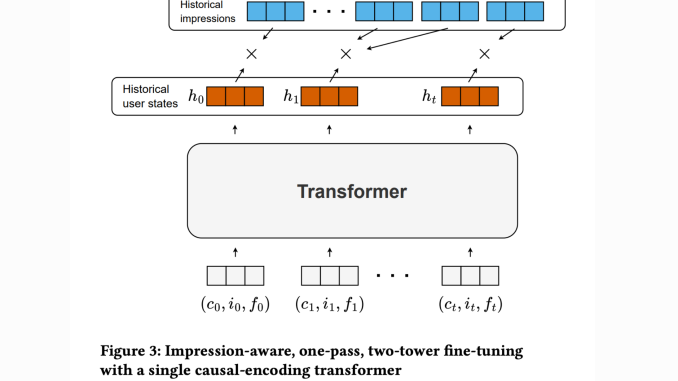
Yandex has introduced ARGUS (AutoRegressive Generative User Sequential modeling), a large-scale transformer-based framework for recommender systems that scales up to one billion parameters. This breakthrough places Yandex among a small group of global technology leaders — alongside Google, Netflix, and Meta — that have successfully overcome the long-standing technical barriers in scaling recommender transformers.
Breaking Technical Barriers in Recommender Systems
Recommender systems have long struggled with three stubborn constraints: short-term memory, limited scalability, and poor adaptability to shifting user behavior. Conventional architectures trim user histories down to a small window of recent interactions, discarding months or years of behavioral data. The result is a shallow view of intent that misses long-term habits, subtle shifts in taste, and seasonal cycles. As catalogs expand into the billions of items, these truncated models not only lose precision but also choke on the computational demands of personalization at scale. The outcome is familiar: stale recommendations, lower engagement, and fewer opportunities for serendipitous discovery.
Very few companies have successfully scaled recommender transformers beyond experimental setups. Google, Netflix, and Meta have invested heavily in this area, reporting gains from architectures like YouTubeDNN, PinnerFormer, and Meta’s Generative Recommenders. With ARGUS, Yandex joins this select group of companies demonstrating billion-parameter recommender models in live services. By modeling entire behavioral timelines, the system uncovers both obvious and hidden correlations in user activity. This long-horizon perspective allows ARGUS to capture evolving intent and cyclical patterns with far greater fidelity. For example, instead of reacting only to a recent purchase, the model learns to anticipate seasonal behaviors—like automatically surfacing the preferred brand of tennis balls when summer approaches—without requiring the user to repeat the same signals year after year.

Technical Innovations Behind ARGUS
The framework introduces several key advances:
Dual-objective pre-training: ARGUS decomposes autoregressive learning into two subtasks — next-item prediction and feedback prediction. This combination improves both imitation of historical system behavior and modeling of true user preferences.
Scalable transformer encoders: Models scale from 3.2M to 1B parameters, with consistent performance improvements across all metrics. At the billion-parameter scale, pairwise accuracy uplift increased by 2.66%, demonstrating the emergence of a scaling law for recommender transformers.
Extended context modeling: ARGUS handles user histories up to 8,192 interactions long in a single pass, enabling personalization over months of behavior rather than just the last few clicks.
Efficient fine-tuning: A two-tower architecture allows offline computation of embeddings and scalable deployment, reducing inference cost relative to prior target-aware or impression-level online models.
Real-World Deployment and Measured Gains
ARGUS has already been deployed at scale on Yandex’s music platform, serving millions of users. In production A/B tests, the system achieved:
+2.26% increase in total listening time (TLT)
+6.37% increase in like likelihood
These constitute the largest recorded quality improvements in the platform’s history for any deep learning–based recommender model.
Future Directions
Yandex researchers plan to extend ARGUS to real-time recommendation tasks, explore feature engineering for pairwise ranking, and adapt the framework to high-cardinality domains such as large e-commerce and video platforms. The demonstrated ability to scale user-sequence modeling with transformer architectures suggests that recommender systems are poised to follow a scaling trajectory similar to natural language processing.
Conclusion
With ARGUS, Yandex has established itself as one of the few global leaders driving state-of-the-art recommender systems. By openly sharing its breakthroughs, the company is not only improving personalization across its own services but also accelerating the evolution of recommendation technologies for the entire industry.
Check out the PAPER here. Thanks to the Yandex team for the thought leadership/ Resources for this article.
Asif Razzaq is the CEO of Marktechpost Media Inc.. As a visionary entrepreneur and engineer, Asif is committed to harnessing the potential of Artificial Intelligence for social good. His most recent endeavor is the launch of an Artificial Intelligence Media Platform, Marktechpost, which stands out for its in-depth coverage of machine learning and deep learning news that is both technically sound and easily understandable by a wide audience. The platform boasts of over 2 million monthly views, illustrating its popularity among audiences.




